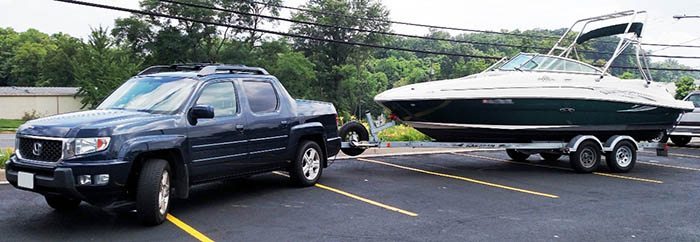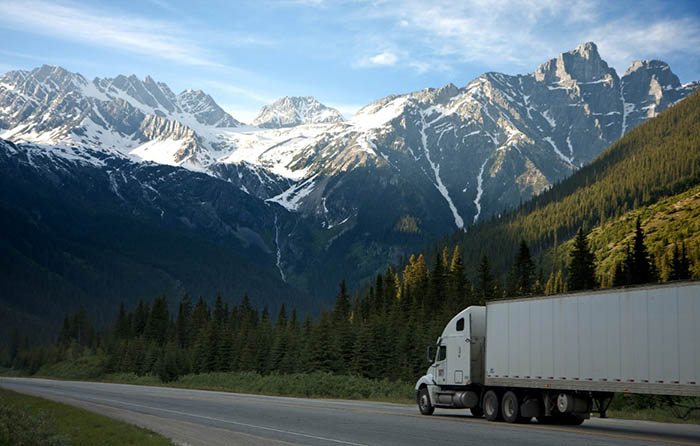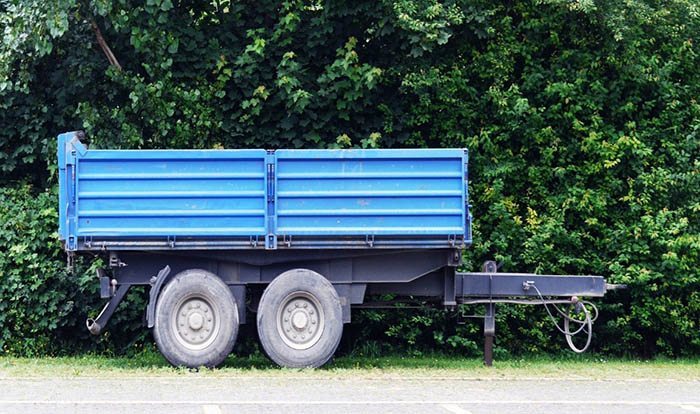
SHOP for TIRES
Trailer Tires: Tougher Than Your Average Tire

Trailers are built for one purpose: to carry heavy loads. So, it makes sense that, as opposed to car tires, trailer tires need to be tougher than your average tire to bear the weight of those loads.
Trailer tires have a separate designation than car and light vehicle tires, which means their design specifications, construction, materials, and safety features are different from regular tires due to the type of weight they need to carry. Therefore, it is important to ensure you are using the right tires for your trailer to avoid any damage or accidents.
Here is some practical information on selecting, maintaining, and driving on tough trailer tires.
Choosing the Right Tires
While all trailers are designed to carry heavy loads, not all loads are equal, and the tires you choose for your trailer will depend on the type of load you need to carry and the performance you expect from those tires.
Trailer tires are designed to include materials that create stiffer sidewalls to reduce and control the amount of sway in the vehicle. They are also constructed from materials that are resistant to weather induced cracking, and, generally, have a shallower tread depth to reduce heat and friction to improve the longevity of the tires. It is important for your safety and for your vehicle performance that you do not use car tires on a trailer.
There are two kinds of tires you can choose for your trailer: Bias-ply tires and radial tires. Bias-ply tires are made of crisscrossing cords of both polyester and nylon. They are designed for rugged performance, and recommended for construction and agricultural vehicles, while radial tires are constructed from plies that run perpendicular to steel belts that are embedded under the tread.
These tires are designed with ride and performance in mind and are perfect for trailers which require tires that last a long time, even with irregular usage; which resist heat; and which have minimal tread wear. This makes them perfect for long-haul trucking.
It is imperative you consider the type of duties that your trailer needs to perform and the kinds of loads it will carry to ensure you select the right tires for your trailer.

Know Your Load Limits
Trailers are designed specifically for carrying heavy loads, but this does not mean you can overload your trailer and still expect to get the same performance from your tires. Just as in cars, overly heavy loads will damage the integrity of the tire and may lead to faster tread wear, reduced inflation, blowouts, and punctures.
It is important to know the exact weight of your trailer's load, including any equipment, gas, water, and the weight of the trailer itself. You can check the load limit of your tires and vehicle by examining the tire sidewall information and your vehicle's manual. Knowing this information will allow you to properly inflate the tires to the recommended pressure and more evenly distribute your trailer load over all four tires. Never, under any circumstances, exceed the load limit of your vehicle, as it will put you at risk of accident and injury.
Trailer Tire Care
One of the biggest causes of trailer tire damage is underinflation. Underinflated tires will heat up as the trailer is used. This heat can cause enormous damage to the tires and may result in blowouts that can impact your safety on the road.
Trailer tires should be inflated to no more and no less than the maximum pressure indicated on the sidewall of the tire and according to the pressure indicated on the vehicle's driver manual. Too little pressure, and the load capacity will be reduced and the tires can overheat. Too much pressure, and the tread will wear down faster resulting in reduced road grip. You can check the pressure yourself, or, if you have a small truck or trailer, you can take your trailer to a local auto shop to check the pressure for you.
It is important to remember to have any damaged or worn tires repaired or replaced as soon as possible. Flat or damaged tires, especially on load-bearing trailers, can lead to damage to the wheels and axles. Regularly inspecting your tires and having a professional tire repair and service will ensure the longevity and performance of your tires.

Final Thoughts
Trailers are essential for hauling heavy loads that are unmanageable for cars and lighter vehicles. They are useful and necessary in a broad range of industries, such as construction, agriculture, and transport.
Due to the difference in load capacity and usage, car tires are unsuitable for use on trailers, so it is important to select trailer tires which have been constructed with these considerations in mind. Select the right tires for your trailer, bear in mind the load capacity of your tires, and keep them well maintained.
